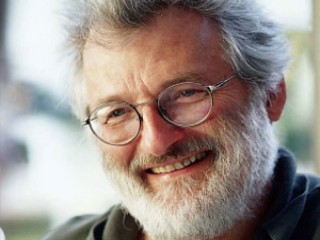
John E. Sulston biography
Date of birth : 1942-03-27
Date of death : 2018-03-06
Birthplace : Cambridge, England
Nationality : British
Category : Science and Technology
Last modified : 2024-03-27
Credited as : biologist, programmed cell death, Nobel Prize for Physiology or Medicine, Wellcome Trust Sanger Institute
1 votes so far
John E. Sulston: Pioneering Discoveries in Biology
Sir John Edward Sulston, a British biologist who, with Sydney Brenner and H. Robert Horvitz, won the Nobel Prize for Physiology or Medicine in 2002 for their discoveries about how genes regulate tissue and organ development via a key mechanism called programmed cell death, or apoptosis.
Sulston earned a B.A. (1963) and a Ph.D. (1966) from the University of Cambridge. Following three years of postdoctoral work in the United States, he joined Brenner's group at the Medical Research Council in England (1969). From 1992 to 2000 Sulston was director of the Sanger Institute in Cambridge.
Early Life and Education
Born in 1942, John E. Sulston was a British biologist whose groundbreaking work alongside Sydney Brenner and H. Robert Horvitz earned him the Nobel Prize for Physiology or Medicine in 2002. Sulston's journey into the world of science began with his academic pursuits at the University of Cambridge, where he earned both his Bachelor of Arts (1963) and Ph.D. (1966) degrees. Following his formal education, Sulston embarked on a path of postdoctoral research in the United States, honing his skills and expertise in the field of biology.
Contributions to Science
Sulston's remarkable career saw him unraveling the mysteries of how genes regulate tissue and organ development through programmed cell death, also known as apoptosis. Joining Sydney Brenner's group at the Medical Research Council in England in 1969, Sulston embarked on a journey that would lead to pioneering discoveries in the field of biology.
Utilizing advanced microscopy techniques, Sulston became the first scientist to observe the process of apoptosis in the cells of the millimeter-long worm, Caenorhabditis elegans. His meticulous observations revealed a fascinating sequence of events as cells divided and died during the worm's development into adulthood.
Leadership and Advocacy
In addition to his groundbreaking research, Sulston played a pivotal role in co-founding the Wellcome Trust Sanger Institute, where he spearheaded the United Kingdom's efforts in the Human Genome Project. His leadership paved the way for significant advancements in genomic research, ensuring that the genetic blueprint of life remained publicly accessible for the benefit of all.
Legacy and Recognition
Throughout his illustrious career, Sulston received numerous accolades and honors for his contributions to science and society. Notably, he was awarded the Nobel Prize in Medicine in 2002, alongside Brenner and Horvitz, for his pioneering research into apoptosis. Sulston's commitment to ethical science and free access to information earned him widespread admiration and respect.
Sulston's advocacy extended beyond the laboratory, as he campaigned tirelessly against the patenting of human genetic information. He believed fervently in the importance of free public access to scientific knowledge and vehemently opposed any attempts to profit from research that could potentially benefit humanity.
Personal Life and Advocacy
Outside of his scientific endeavors, Sulston led a rich and fulfilling personal life. He met Daphne Bate, a research assistant in Cambridge, and the two married in 1966 before embarking on their postdoctoral research journey together. They welcomed two children, Ingrid and Adrian, and immersed themselves in their local community in Stapleford, Cambridgeshire.
Despite being raised in a Christian family, Sulston lost his faith during his student years at Cambridge and identified as an atheist. He was a distinguished supporter of Humanists UK and advocated for secular values and ethical principles in science and society.
Sulston's commitment to scientific integrity and public welfare extended to his involvement in social and political issues. In 2003, he was among the 22 Nobel Laureates who signed the Humanist Manifesto, reaffirming his dedication to humanistic ideals and values.
In Memoriam
Tragically, Sulston's remarkable journey came to an end on March 6, 2018, when he lost his battle with stomach cancer at the age of 75. His passing marked the end of an era in the field of biology, but his legacy continues to inspire future generations of scientists, reminding us of the profound impact that dedication and ethical leadership can have on the world of science.
Awards:
Darwin Medal 1996
Knight of the British Empire 2001
Dan David Prize 2002
Nobel Prize for Medicine 2002 (with Sydney Brenner and H. Robert Horvitz)
















